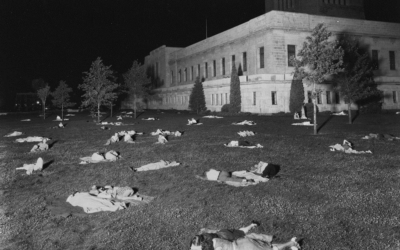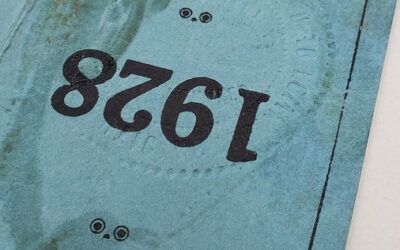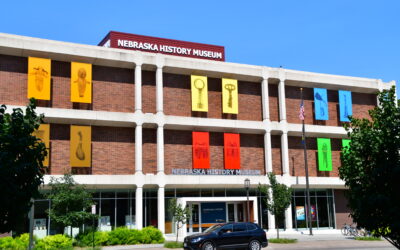When Clayton Yeutter was recently sworn in as Secretary of Agriculture, he assumed an
office previously held by two other Nebraskans. Clifford Hardin filled the post from 1968-
1971. Nebraska’s first Secretary of Agriculture was J. Sterling Morton. Appointed at the
beginning of President Grover Cleveland’s second term in 1893, Morton was the first
Nebraskan to serve in any cabinet post. The job had only been created four years earlier;
Morton transformed the position from a political joke into a effective resource for American
agriculture.
Under the direction of Morton’s predecessor, General Jeremiah Rusk, the Department of
Agriculture had become a national feed bag. Jobs were handed out as readily as seed
samples. “Uncle Jerry,” as Rusk was called in the papers, may have had good intentions, but
his hayseed approach to administration was a disaster.
Morton quickly set about changing the Department of Agriculture’s image. His unfailing
humor was a great asset. Morton may have been the best-dressed and most urbane man in the
cabinet, but he used bucolic references whenever it was to his advantage. This
correspondence to the President’s private secretary is typical:
“Be kind enough to inform me whether the gentlemen of the Cabinet who are to appear at the
White House at 5:30 this afternoon are expected to come in full dress or Prince Albert suits.
We grangers are a little unused to so much daylight style.”
“It is my intention now to yoke up the steers so as to arrive there in time, if I finish husking
the corn, feeding the pigs, and milking the cows in time to get up there.”
Economy and efficiency were Morton’s watchwords, and he personally investigated accounts
for seeming extravagance. He wrote one experiment station director, “I notice that the feed
bill for your horses during the past ten months has averaged $178.77 per month. That I
consider extravagant beyond all reason. I wish it distinctly understood that wherever there is
an opportunity to economize, it should be embraced with alacrity, and that if you do not economize
some one will be put in your place who will.”
Secretary Morton eliminated frivolous jobs, closed unneeded experiment stations, and did
away with expensive “perqs” for special interest groups. His administration championed
scientific investigation aiding agriculture. Morton created three new divisions, agrostology,
agricultural soils and crop production, and road improvement. Under Morton’s leadership,
the Weather Bureau added 10,000 cities and towns to its service. A new section of Foreign
Markets, designed to extend foreign markets and inform American farmers of export
opportunities was added.
Leaving the Secretary’s office in March of 1897, Morton could point with pride that “I have
covered back into the Treasury more than two millions of dollars.” More importantly,
Morton made the Agriculture Secretary’s position a respected part of the President’s cabinet.



